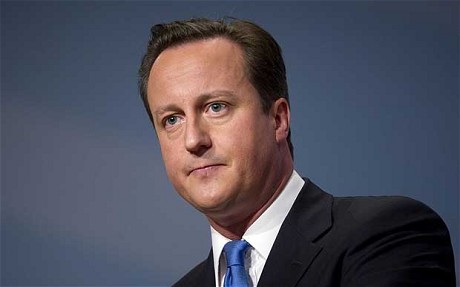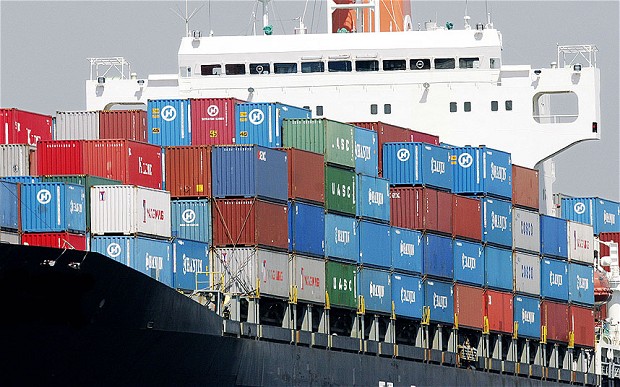In an historical decision last week that shook the world, the United Kingdom voted through referendum to “Brexit”, or leave the European Union, giving rise to numerous political, economic, and social implications. The social implications were already visible on a personal level over the weekend, as many people living in the UK — particularly ethnic minorities and foreign workers — have experienced discrimination and harassment from pro-Leave citizens over the weekend.
Amongst the uncertainty for international migrants in the wake of #Brexit, we at Collective recently shared our insights and reflections on the unique position of migrant workers in society.
However, our mission to inform and advise business leaders in sustainable practices and policies leads us to analyze the impact of Britain’s separation from the EU. This is a political and economic move that will leave repercussions for policy and trade for the foreseeable future. Let’s break it down.

CHANGING OF THE GUARD
Along with the economic downfall over the past weekend, Britain is currently in the throes of political upheaval as several officials, including Prime Minister David Cameron, have handed in their resignations shortly after the #Brexit referendum decision was made. Among these leaders stepping down from their posts is Kerry McCarthy, the Labour Party Shadow Cabinet’s Secretary of State for Environment, Food and Rural Affairs.
In her resignation letter to Labour Party Leader Jeremy Corbyn, which was published to Twitter, McCarthy stressed the importance of retaining sustainability and environmental policy priorities in the coming political reshuffle.
“Many of the critical issues handled by the Department are intrinsically linked with our membership of the European Union: CAP payments, the Nature Directives, implementing the EU circular economy package,” she wrote. “Vital protections won through our EU membership must not be jettisoned.”
Despite the extensive changing of the political guard in just the past few days, some assert that an EU departure is unlikely to change much in terms of environmental industry restrictions.
However, considering that many of the leaders of Britain’s #Brexit campaign are climate change skeptics, including former London mayor and spearheading Brexiteer Boris Johnson, concerns that UK policies will be reversed or revised to pose less restrictions on unsustainable practices are not entirely misplaced. Pro-leave campaigner and former environment secretary Owen Patterson has called for Britain’s Climate Change Act to be “scrapped” in the past, and there are many others in similar boats.
POTENTIAL POLICY PUSHBACK
But in a time where much of the world’s attention will be focused on political and economic treaties, deals, and laws, we at Collective want to ask: what changes are imminent in the arena of environmental law?
Several EU countries and political bodies, including UK-member Scotland, have already exceeded their 2020 carbon-cutting emissions goals 6 years early, indicative of the widespread adherence to EU policy agreements. But such achievements are only as valuable as the momentum which may or may not follow.
Some analysts and officials have highlighted the unsure future of environmental and sustainability policy, not just for Great Britain but internationally as well, as agreements like the United Nations’ Paris Agreement (COP21) that were founded on the basis of a UK-inclusive EU will need to be rewritten.
Some of the UK’s individual environmental policies are not linked with the European Union’s agreements. Instead, many stem from broader international agreements like the past Kyoto Protocol, such as the Climate Change Act of 2008, which calls for CO2 emissions to be cut by 80% from 1990 levels to 2050.
However, sustainability is not only a matter of environmental protections, but also a key component of long-term, efficient use and development of economic resources — and the trade-oriented fallout from #Brexit may perfectly exemplify the degree to which these two global influences are intertwined.
Britain will find that it is in the UK’s best interest to continue to align with international standards of sustainability and environmental protection, if for the motive of protecting shaky trade relationships alone. As one law consultancy firm explained, “if UK-based exporters wanted to see their products in the EU, they would have to comply with many of the product-related laws and standards that currently exist and will, in the future, be imposed.”

INEVITABLE TRADE IMPLICATIONS
When the UK, the world’s fifth-largest economy, leaves the world’s largest economic grouping, the EU, the inevitable economic flux is at the forefront of everyone’s mind — and many of the more tangible impacts were already evident since the very day of the referendum vote. The British pound saw an alarming drop against the US dollar on Thursday as the #Brexit results began to be apparent, accompanied by negative impacts on the stock market, and some expect UK housing prices to drop by Christmas as well.
Many analysts agree that Britain is likely to experience some form of a recession by early 2017, but the international repercussions resulting from a “global chilling effect on investment” and imbalances between the British pound and other currencies may have even longer-lasting implications.
Potential uncertainty surrounding Britain’s trade agreements with long-time allies like the United States is already causing some concern among political leaders like Sir Peter Westmacott, Former British Ambassador to the United States. Westmacott echoed the fears of many that a post-Brexit UK would be a far less influential force in international affairs, and this may change the relationship between Britain and allies like the US.
“I think we are going to have to paddle even harder with our diplomacy… to ensure that we continue to ensure that we have our place at the table,” Westmacott said.
Predictions that investors and trade partners will pull back from UK-involved projects paint a grave economic picture for Britan’s future negotiations. And, since ease in employee migration is a key component in international trade negotiations, the UK’s potential deportation of international workers will be far from an advantage at the upcoming global bargaining table.
BREXIT v. ARTICLE 50: THE WORLD IS WATCHING
Despite the finality of the referendum’s results, several factors integral to UK’s departure from the EU have yet to be decided. Scotland, for instance, had a decisive majority vote in favor of “Remain” and will be holding its own referendum to determine its future position between the EU and the UK. Northern Ireland, which also voted majority for “Remain”, is in a similar boat.
But more importantly, the act of departure from the EU and their associated negotiations will not officially take place until British leadership puts the Libson Treaty’s Article 50 into motion. Through his resignation, David Cameron is passing the torch of responsibility to the next Prime Minister, causing many to wonder if #Brexit will ultimately be a groundbreaking separation in theory alone.
Regardless of what actions will be taken in the near future, British officials, international bodies, and business professionals and investors alike are sure to be watching for what comes next.
This article was researched and written by Gabrielle Williams, Research Analyst at Collective Responsibility.
